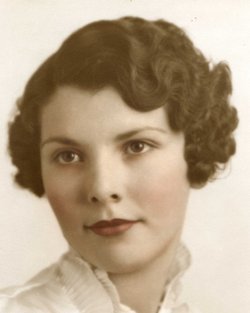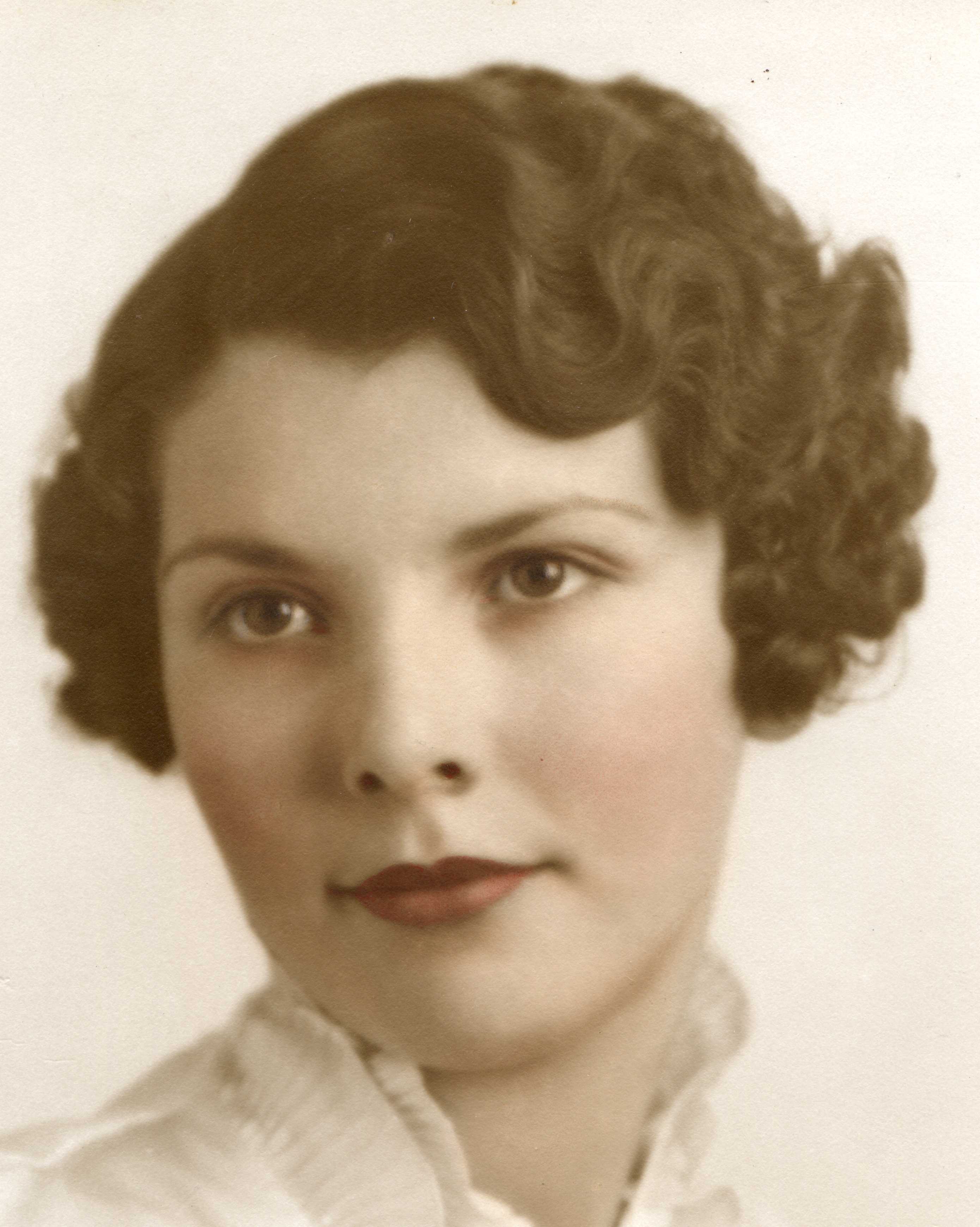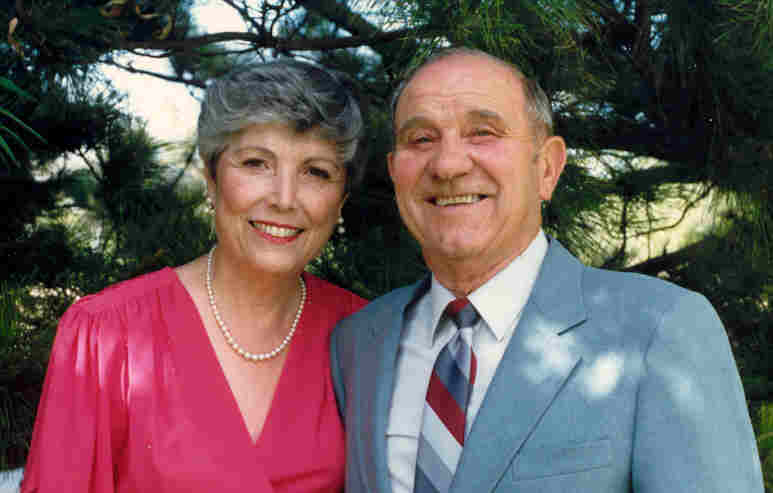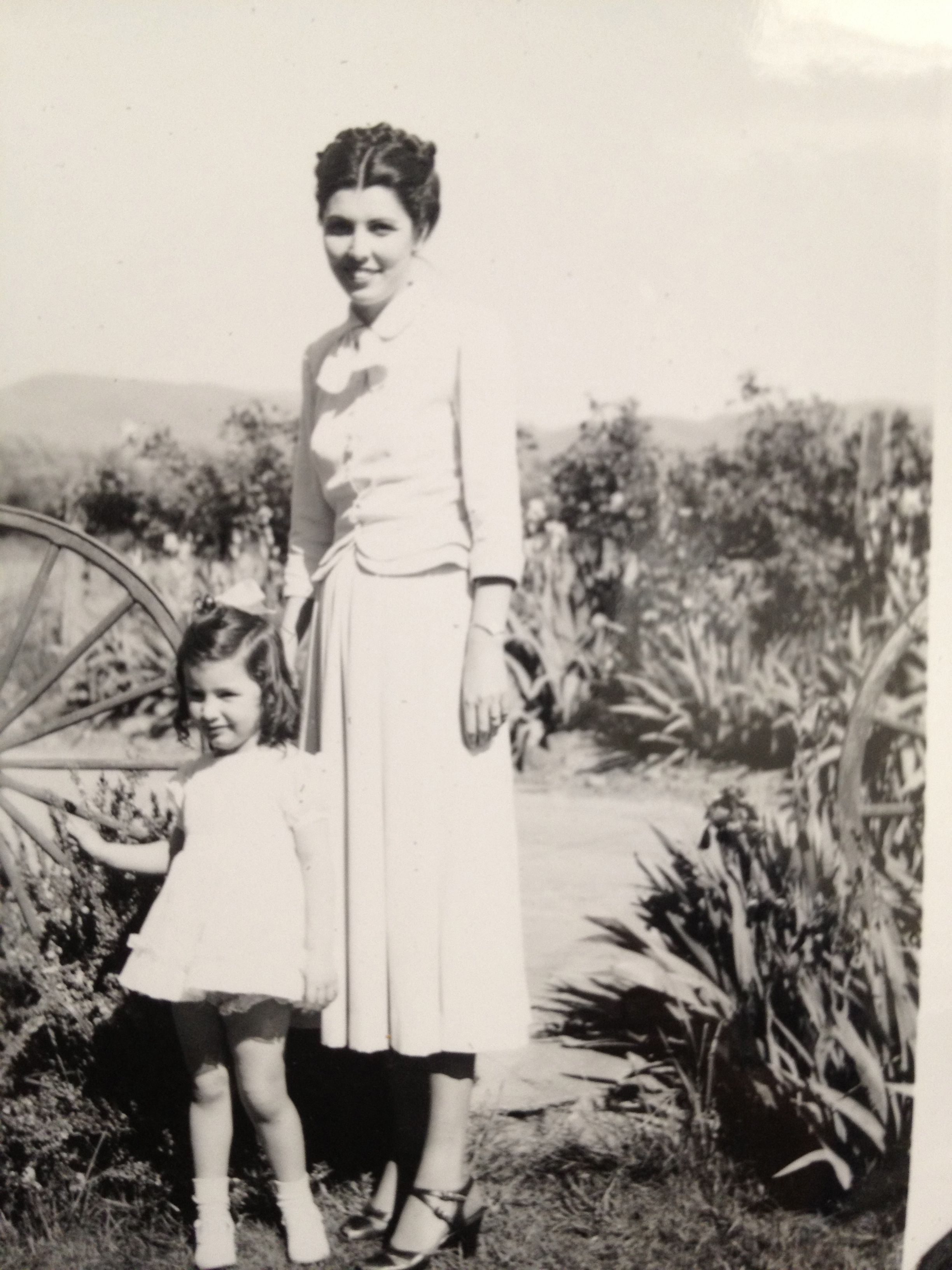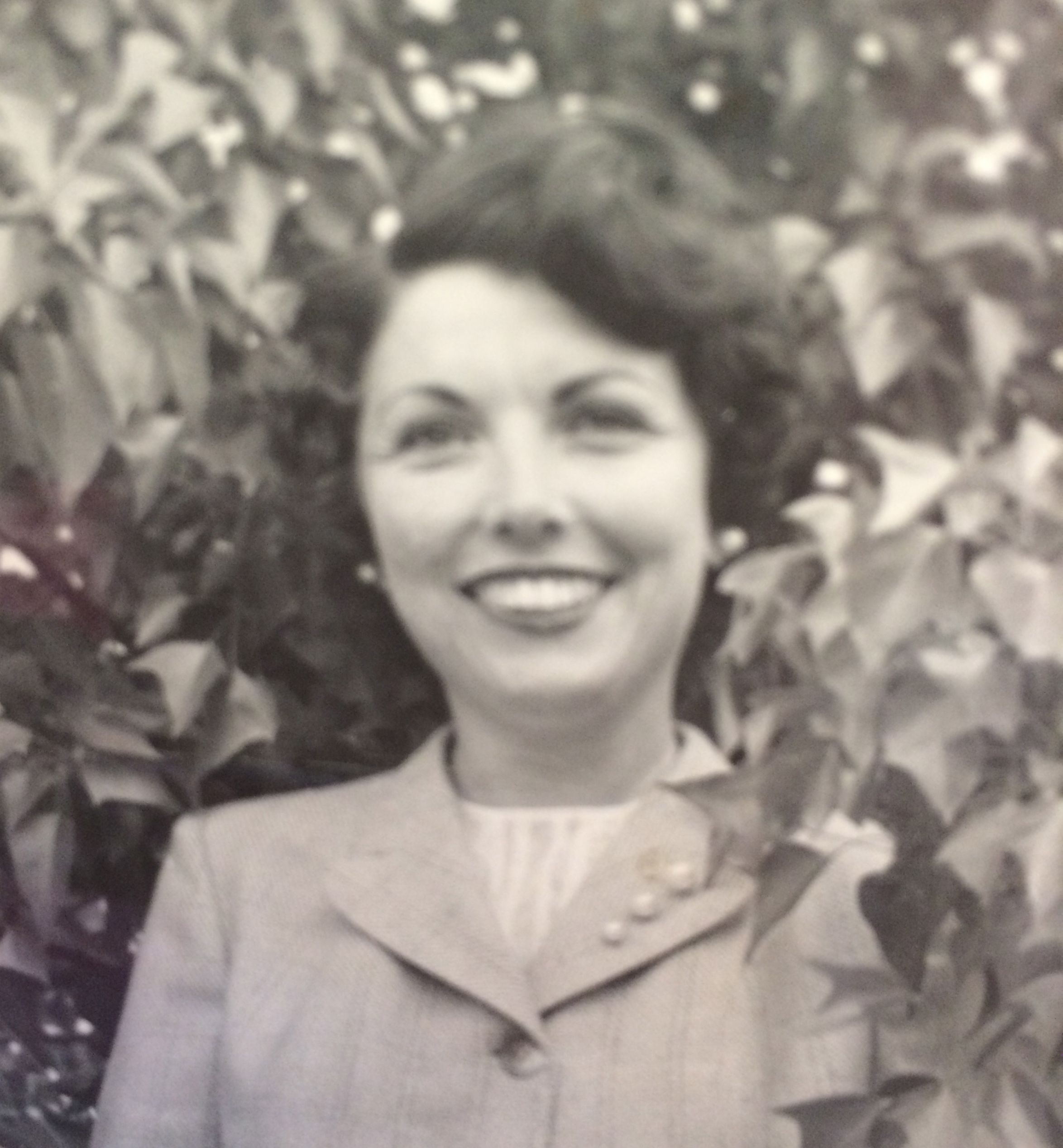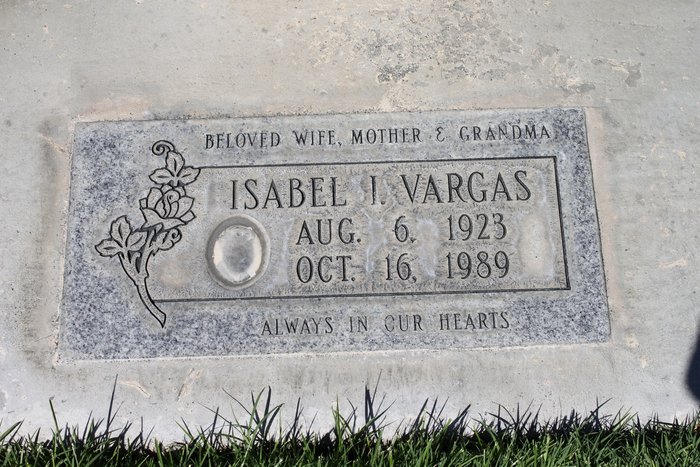Isabel was the daughter of a first generation Azorean mother, Annie Vargas, and an immigrant father, Joe E. Maciel from Pedro Miguel, Faial. Her childhood was spent on various rented farmlands with her older sister, Anita, and two younger brothers, Tony and Manuel. She talked about picking prunes, cutting apricots, and playing with her many cousins who were the children of her mother's nine brothers and sisters that lived in the Warm Springs area of what is now Fremont, California. Her parents were able to keep her older sister, Anita, home from high school, as they needed her to take care of the younger brothers while they both worked to keep their farm afloat. They expected Isabel to also stay home after she graduated from Warm Springs Grammar School, but Isabel put up a fight. Isabel, with ambitions a little ahead of most daughters of immigrants, won her battle. She loved school, was very bright, and was an outstanding student at Washington Union High School. Isabel became a student body officer, earned life membership in the California Scholarship Federation, and was even offered a scholarship to college. Her parents watched their independent daughter closely. They did not allow her to go out on dates, and when they finally approved of a young man, Ernest Vargas, who was the son of the man who harvested their grain, all of their "dating" visits took place at home. Eventually the young couple was allowed to go out, but a younger brother would always have to go with them.
Isabel's parents discouraged her from taking the college scholarship and that, coupled with the fact that she was head over heals in love with Ernie, made her choice easy. Isabel married Ernie in the fall of 1941, after her graduation from high school. They settled in Oakland, California so that Ernie could be near his work as a welder in the shipyards. Ernie expected Isabel to stay home and settle into the role of housewife, but it did not take long for Isabel, always ahead of the crowd, to have another idea. As soon as she heard that the Bank of America was hiring married women, she applied and began working as a bookkeeper. She enjoyed that work until she left for the birth of her daughter, Susan, in 1944. When Ernie was drafted in 1945, she followed him to basic training in Paris, Texas and soon found herself volunteering for the USO. And so her life formed a pattern. Isabel loved the stimulation of the outside world, in both work and volunteerism. When Ernie returned home from his service, he established his own business, called Vargas Welding in Centerville, California. Ernie worked so hard with the welding, but it was Isabel that did the bookkeeping and was his main support throughout this business venture. As soon as Susan was off to the first grade, Isabel was off to work again. She worked as a medical receptionist for several doctors in the Fremont area at a time when the receptionist not only greeted people and booked appointments, but also did many nursing tasks for the doctors. Isabel stopped working in 1954 when their second and last child, Emanuel, was born. Her club work began to fill the gap in the transition from being employed to being a stay at home mom. She became president of Susan's grammar school's parents club, St Mary of the Palms. She served in many offices for the Sao Gabriel Council 84 of the SPRSI, including president. In 1985, she researched and presented an oral history of that club at a luncheon to honor its 75th anniversary. She was also president of St. Jude Young Ladies Institute, as well as district deputy of District 3 of the YLI. She taught catechism at Holy Spirit Church and was active in the Catholic Daughters of America in Fremont. Isabel would have fit right into society today, where most moms participate in outside activities and do work outside of the home, but she was definitely ahead of herself in the 1950's.
In 1964, Isabel and Ernie shifted gears and moved to Tracy where Ernie started a new career as a commercial grain harvester. Isabel had no trouble settling into her new community, as, by now, she was quite adept at meeting people and finding causes to keep her busy. She taught catechism at St. Bernard's School, served on their parish council, and received the Pius X Award for Catechetical Service. Isabel taught cooking at her son's 4-H youth group. She became in turn, president of Tracy's South School PTA, Senior Elementary and Tracy Council PTA. She treasured the friendships she made at the Altar Society, Carbona Farm Women, Republican Women, Tracy Women's Club, Children's Home Society and the Tracy Soroptimist Club. Isabel was treasurer for the Evelyn Costa for Supervisor Committee in the 1980's and was vice president for Tracy Republican Women. She was a director for California Women for Agriculture. She was president of her Soroptimist Club in 1884 and they first honored her with the Mattie Heywood Award for outstanding service to their club and, in 1989, she was given the Women of Distinction Award for being recognized by her peers as an ideal role model for women, having made outstanding contributions over a significant time. Through all those activities she remained the bookkeeper and backbone of her husband's harvesting business until he retired in 1987. Isabel then took over bookkeeping for her son Emanuel's pistachio distribution business, Tri-Cal. Before most people knew what a computer was, in 1988, Isabel was using one, loved the challenge of mastering it, and predicted that it would become the thing of the future.
Isabel's accomplishments were impressive but to those who knew her, it was her kind personality and her grace that is remembered. She was statuesque and beautiful. She could buy her clothes out of the Sears catalogue, and did, while maintaining a high sense of style and class. She would speak her mind, and did, but it would always come across with tact. She had a natural gift for public speaking and for putting her thoughts down on paper. She was a devoted daughter and shared her home with her mother for over fifteen years. She was a loving wife, who "took care of everything" because she loved doing it for 48 years of marriage. She would stop in her tracks to do anything for her children and grandchildren. She loved her four grandchildren, John, Joe, Anna and Selena. While they lived an hour away, she sent them letters, and there was always a room for them to stay at grandma's house in the summer.
While no one had ever returned to the Azores from her family, she was the person who decided to go which opened the gates for two return visits for her and many more visits for her husband, children, and grandchildren. It was her dream and she made it their reality.
She had a philosophy that she liked to share with her family and others: "If there is something that I can do in this world for anyone please let me do it now, for I will not pass through here again." Isabel lived her philosophy and she accomplished so much. Isabel was diagnosed with pancreatic cancer in February of 1989, and she left the world as she had entered it, at the young age of 66, much earlier than all who loved her expected. Copyright Susan Vargas Murphy. All rights reserved.
Isabel was the daughter of a first generation Azorean mother, Annie Vargas, and an immigrant father, Joe E. Maciel from Pedro Miguel, Faial. Her childhood was spent on various rented farmlands with her older sister, Anita, and two younger brothers, Tony and Manuel. She talked about picking prunes, cutting apricots, and playing with her many cousins who were the children of her mother's nine brothers and sisters that lived in the Warm Springs area of what is now Fremont, California. Her parents were able to keep her older sister, Anita, home from high school, as they needed her to take care of the younger brothers while they both worked to keep their farm afloat. They expected Isabel to also stay home after she graduated from Warm Springs Grammar School, but Isabel put up a fight. Isabel, with ambitions a little ahead of most daughters of immigrants, won her battle. She loved school, was very bright, and was an outstanding student at Washington Union High School. Isabel became a student body officer, earned life membership in the California Scholarship Federation, and was even offered a scholarship to college. Her parents watched their independent daughter closely. They did not allow her to go out on dates, and when they finally approved of a young man, Ernest Vargas, who was the son of the man who harvested their grain, all of their "dating" visits took place at home. Eventually the young couple was allowed to go out, but a younger brother would always have to go with them.
Isabel's parents discouraged her from taking the college scholarship and that, coupled with the fact that she was head over heals in love with Ernie, made her choice easy. Isabel married Ernie in the fall of 1941, after her graduation from high school. They settled in Oakland, California so that Ernie could be near his work as a welder in the shipyards. Ernie expected Isabel to stay home and settle into the role of housewife, but it did not take long for Isabel, always ahead of the crowd, to have another idea. As soon as she heard that the Bank of America was hiring married women, she applied and began working as a bookkeeper. She enjoyed that work until she left for the birth of her daughter, Susan, in 1944. When Ernie was drafted in 1945, she followed him to basic training in Paris, Texas and soon found herself volunteering for the USO. And so her life formed a pattern. Isabel loved the stimulation of the outside world, in both work and volunteerism. When Ernie returned home from his service, he established his own business, called Vargas Welding in Centerville, California. Ernie worked so hard with the welding, but it was Isabel that did the bookkeeping and was his main support throughout this business venture. As soon as Susan was off to the first grade, Isabel was off to work again. She worked as a medical receptionist for several doctors in the Fremont area at a time when the receptionist not only greeted people and booked appointments, but also did many nursing tasks for the doctors. Isabel stopped working in 1954 when their second and last child, Emanuel, was born. Her club work began to fill the gap in the transition from being employed to being a stay at home mom. She became president of Susan's grammar school's parents club, St Mary of the Palms. She served in many offices for the Sao Gabriel Council 84 of the SPRSI, including president. In 1985, she researched and presented an oral history of that club at a luncheon to honor its 75th anniversary. She was also president of St. Jude Young Ladies Institute, as well as district deputy of District 3 of the YLI. She taught catechism at Holy Spirit Church and was active in the Catholic Daughters of America in Fremont. Isabel would have fit right into society today, where most moms participate in outside activities and do work outside of the home, but she was definitely ahead of herself in the 1950's.
In 1964, Isabel and Ernie shifted gears and moved to Tracy where Ernie started a new career as a commercial grain harvester. Isabel had no trouble settling into her new community, as, by now, she was quite adept at meeting people and finding causes to keep her busy. She taught catechism at St. Bernard's School, served on their parish council, and received the Pius X Award for Catechetical Service. Isabel taught cooking at her son's 4-H youth group. She became in turn, president of Tracy's South School PTA, Senior Elementary and Tracy Council PTA. She treasured the friendships she made at the Altar Society, Carbona Farm Women, Republican Women, Tracy Women's Club, Children's Home Society and the Tracy Soroptimist Club. Isabel was treasurer for the Evelyn Costa for Supervisor Committee in the 1980's and was vice president for Tracy Republican Women. She was a director for California Women for Agriculture. She was president of her Soroptimist Club in 1884 and they first honored her with the Mattie Heywood Award for outstanding service to their club and, in 1989, she was given the Women of Distinction Award for being recognized by her peers as an ideal role model for women, having made outstanding contributions over a significant time. Through all those activities she remained the bookkeeper and backbone of her husband's harvesting business until he retired in 1987. Isabel then took over bookkeeping for her son Emanuel's pistachio distribution business, Tri-Cal. Before most people knew what a computer was, in 1988, Isabel was using one, loved the challenge of mastering it, and predicted that it would become the thing of the future.
Isabel's accomplishments were impressive but to those who knew her, it was her kind personality and her grace that is remembered. She was statuesque and beautiful. She could buy her clothes out of the Sears catalogue, and did, while maintaining a high sense of style and class. She would speak her mind, and did, but it would always come across with tact. She had a natural gift for public speaking and for putting her thoughts down on paper. She was a devoted daughter and shared her home with her mother for over fifteen years. She was a loving wife, who "took care of everything" because she loved doing it for 48 years of marriage. She would stop in her tracks to do anything for her children and grandchildren. She loved her four grandchildren, John, Joe, Anna and Selena. While they lived an hour away, she sent them letters, and there was always a room for them to stay at grandma's house in the summer.
While no one had ever returned to the Azores from her family, she was the person who decided to go which opened the gates for two return visits for her and many more visits for her husband, children, and grandchildren. It was her dream and she made it their reality.
She had a philosophy that she liked to share with her family and others: "If there is something that I can do in this world for anyone please let me do it now, for I will not pass through here again." Isabel lived her philosophy and she accomplished so much. Isabel was diagnosed with pancreatic cancer in February of 1989, and she left the world as she had entered it, at the young age of 66, much earlier than all who loved her expected. Copyright Susan Vargas Murphy. All rights reserved.
